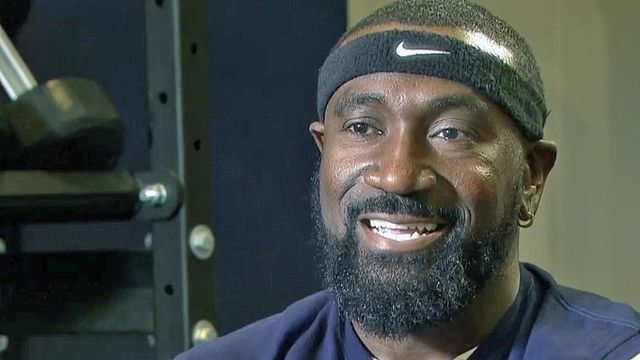On cancer journey, every gesture helps
Any while diagnoses, outlooks and treatment plans vary by the individual, there are shared elements of the cancer journey. Two survivors told WRAL News that support -- from family, friends, coworkers and strangers -- helped in whatever form it took.
Posted — UpdatedMore than a million and a half Americans will hear "You have cancer" in 2017. More than 14 million in the United States are living with the disease.
It's a club no one wants to join, but it is large enough to touch just about every family.
While diagnoses, outlooks and treatment plans vary by the individual, there are shared elements of the cancer journey.
Beth Teel, heard those awful words twice. She is a two-time breast cancer survivor.
"When you hear 'cancer,'" Teel said, "there’s still a stigma of death, even though more people are surviving. That’s the first thing that crosses your mind, that you’re not going to make it."
Since her first diagnosis in July 2011, Teel said, "There's never a moment where I haven't thought about cancer."
While cure rates and longevity after diagnosis are rising for breast cancer as awareness and research boom, Teel says statistics don't matter when cancer becomes personal.
"I had someone tell me, and it still hurts me to this day, when I told him I had breast cancer, he says, 'Yeah, everybody gets breast cancer now. It's not a big deal.' Well, it is a big deal, and it will always be a big deal when it's you," she said.
Teel chose to have a double mastectomy, but the cancer also crept into her lymph nodes.
"When I would have chemo, I felt like I was dying, just so sick," she said.
Her family formed "Team Beth," rallying to support her in the weeks after her surgery. Her grown children cooked meals, drove her to appointments and gave her shots and pep talks so that husband Marc could continue to work.
"I had a lot of people say to me, 'Sons would've never done that,' but my sons did," Teel said.
"That was a big emotional challenge for me, to let them take care of me, because I didn’t want to. I’m the mom, I’m the one who takes care of them," she said.
The Teels also faced the financial burden that a cancer diagnosis can bring.
"That’s a big challenge that people don’t think about," she said. "You have all these cancer bills. Even with insurance, you have a whole lot."
At the age of 45, Thomas Goode of Durham, is in his 11th year of living with multiple myeloma, a cancer of the plasma cells. He was a healthy man his mid-30s when he was found to have an incurable disease that usually hits people in their 70s.
"I went through the 'why me' phase," Goode said. "Everyone goes through that phase. After talking to my family and reading some books, I accepted it and went through the 'why not me' phase: what makes me different than anyone else that can be diagnosed with this disease?"
He endured clinical trials, a change of medication and three stem cell transplants.
"I found my outlet by talking to others and working out, and I really started finding myself," he said.
His seven siblings have rotated staying with him, and his work family also stepped up to help. Some even donated their time off so that he could use days to have his treatments.
He's learned to accept offers for help and to be specific when people ask.
"You have to be able to say, 'You know what, can you go to the grocery store for me and do this? That's tough on a patient," he said.
Goode also looked for a mentor to guide his journey, but he couldn't find anyone with his cancer who wanted to talk about it.
"I just thought that they were selfish. I thought they didn’t want to share. It took me a little while to realize they weren't selfish. They were still scared in their treatment," he said.
Now, he's filling that role for others, leading a cancer support group.
Both Goode and Teel also poured out their pain by blogging on their Caring Bridge sites. Teel said comforting comments, even from complete strangers, gave her strength.
Teel is undergoing chemotherapy once a month and continues to draw on her support network.
"I wish I could've told myself then, 'You're going to have the strength; you're going to figure this out. You have the best support team in the whole world, and everybody you love is going to help you through this,'" she said.
Goode is on maintenance chemo and, in his words, in a good place.
Both listed big and small ways that their individual support communities were able to help and encouraged any gesture that can lift the burden or the spirits of someone facing down cancer.
Some of Teel's friends hired a cleaning service. Others raised money to help pay off a medical bill. Kids from church gave her a message jar with all kinds of positive sayings that she opens every day. Neighbors made dinner for her and her family every Wednesday night for eight months.
• Credits
Copyright 2024 by Capitol Broadcasting Company. All rights reserved. This material may not be published, broadcast, rewritten or redistributed.





